In today's world, software is one of the pillars of technology. Every day we use applications and computer programs that simplify our lives, from work to leisure. Have you ever been curious to know what lies behind the creation of software? In this article we will try to explore in a clear and practical way what software is, how it is developed and why it is essential for companies.
What is software and what is it used for?
In the field of computer science, the term software refers to that set of instructions, or code, that allows a computer to perform specific operations. Without software, the hardware part - that is, the physical component of a device - would be useless. For example, your smartphone would not work without an operating system like Android or iOS.
What is the software for?
The software has multiple uses, from the simplest to the most complex:
-
Automation: Allows you to automate repetitive tasks, reducing errors and saving time.
-
Interaction: Allows users to interact with devices and get immediate results.
-
Management: Helps organize and analyze large amounts of data, which are essential for businesses.
.jpg?width=1920&height=1080&name=sviluppo-software-ekeria%20(1).jpg)
Types of software
There are different types of software, each designed for specific purposes. Among the main ones we find:
-
System software:
- It includes the operating system, which manages the computer hardware and applications. Some examples of operating systems are Windows, macOS, and Linux.
- It also includes basic tools such as compilers, which translate source code into executable machine language.
- It includes the operating system, which manages the computer hardware and applications. Some examples of operating systems are Windows, macOS, and Linux.
-
Application software:
- Designed to perform specific tasks, such as business software, mobile apps, or web software.
- Practical examples include graphics programs, productivity suites such as Microsoft Office, and e-commerce apps.
- Designed to perform specific tasks, such as business software, mobile apps, or web software.
-
Basic software:
-
This type of software provides the basis for other applications to function and interfaces directly with the hardware.
-
Knowing these typologies helps you understand which software can best meet your personal or business needs.
Why Software is Important for Business
Nowadays, every company, big or small, relies on customized software to improve their efficiency. Through dedicated tools, companies can optimize processes, reduce costs and offer high-quality services. But what are the practical benefits?
Examples of use in companies
- Internal process management: Management software allows you to automate operations such as accounting, human resources management and inventory control.
- Improved customer experience: A dedicated app or CRM (Customer Relationship Management) software helps you maintain direct contact with customers, improving their satisfaction.
- Data analysis: Through the software, companies can collect, analyze and visualize large amounts of data, obtaining useful insights for making strategic decisions.
Choosing a software house
Relying on a software house allows you to obtain tailor-made solutions, with the support of experts who follow each phase of the development process. A company that deals specifically with software offers not only software development, but also maintenance, support, updates and an ongoing consultancy service.
.jpg?width=1920&height=1080&name=software-house%20(1).jpg)
How to develop software: the process
Software development is not just a technical matter, but a real organizational project. It is a path that follows different phases, all of which are essential to guarantee the quality of the final product. This path is known as the software development life cycle.
The main phases of the life cycle
- Requirements Analysis: This phase is used to precisely define what the software must do. The customer's needs are collected and translated into technical specifications.
- Design: In this phase, we decide how the software will work, defining its architecture and choosing the most suitable development model.
- Development and Programming: Programmers write the code using an appropriate programming language. The most popular ones are Python, Java and JavaScript.
- Testing and Quality Control: The software is rigorously tested to ensure that it works correctly and is free of bugs.
- Distribution and Release: The product is delivered to end users and made operational.
- Maintenance: This includes periodic updates, fixes and improvements based on user feedback.
Development approaches and models
There are several ways to approach the software development process, including:
- Waterfall model: Phases are completed sequentially, with little room for change along the way.
- Agile methodologies: Allow you to work iteratively, adapting to changes along the way.
- Open source: Code is made public and developed collaboratively, often with input from a global community.
Practical tools for developing software
To create quality software, developers use advanced tools. Some of the most common ones are:
- Integrated Development Environments (IDEs): Such as Visual Studio, IntelliJ, and Eclipse, which help you write and debug code.
- Compilers: These transform code into machine language that your computer can run.
- Frameworks: Such as React, Angular, or Django, which provide a structured foundation for building applications.
Here is a table with some programming languages and their uses:
| Programming language | Main use |
|---|---|
| Python | Data analysis, web development, artificial intelligence |
| Java | Business applications, computer software |
| JavaScript | Interactive web application development |
| C++ | System software, games, high-performance applications |
.jpg?width=1920&height=1080&name=linguaggi-di-programmazione%20(1).jpg)
Why rely on a software house
Creating software is not just writing code. In fact, it is necessary to understand the user's needs, design a functional product and ensure that it is maintained over time. Relying on a software house means having a team of experts available who can follow every phase of the software development life cycle.
The practical advantages
- Customized solutions: each software is custom designed to meet the specific needs of the customer.
- Continuous support: the team takes care of maintenance, updates and improvements.
- Saving time and resources: the software house manages every detail of the project, leaving the company free to focus on its core business.
Conclusion: Ekeria for the right software development for you
The world of software is vast and complex, but understanding its basics is essential to fully exploit its potential. From application development to customized solutions for businesses, the software development process requires technical skills, strategy and a deep understanding of user needs.
For modern businesses, software is not just a tool, but a true strategic ally that allows them to successfully face market challenges. However, creating software that really works and is able to evolve over time requires experience and attention to detail.
Relying on a software house means being able to count on a team of professionals capable of transforming an idea into a concrete product. Thanks to the support of experts, it is possible to obtain custom-designed software that integrates the latest technological innovations and guarantees high performance in the long term.
Whether you are trying to develop a new app or optimize business processes with management software, collaborating with a qualified partner can make the difference. Investing in the development of the right software is not just a technological choice, but a winning strategy for the future of your company. Ekeria, as a tech agency, has a team of software developers specialized in different areas. Do you want to create the right software for you? Contact us and request a free call now.
.webp)


